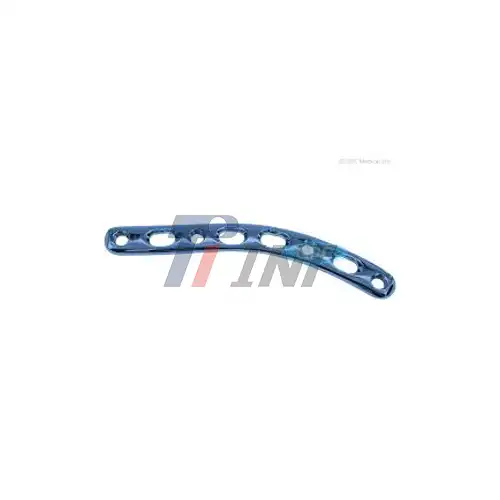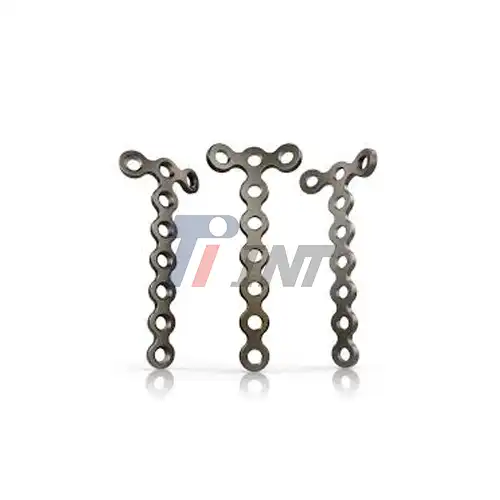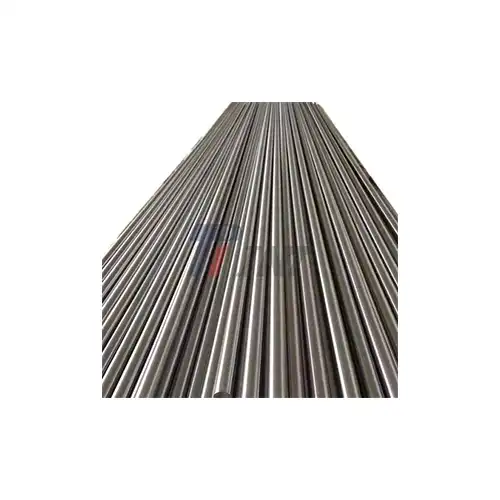Common Concerns About Titanium Plates in Heart Surgery
 2025-09-28 13:44:36
2025-09-28 13:44:36
Heart surgery is a delicate and complex procedure that often requires the use of specialized materials to ensure the best possible outcomes for patients. One such material that has gained significant attention in recent years is titanium, particularly in the form of titanium plates used in various cardiac procedures. As medical technology advances, titanium plate heart surgery has become increasingly prevalent, offering numerous benefits to patients and surgeons alike. However, as with any medical intervention, there are common concerns and questions that arise regarding the use of titanium plates in heart surgery. In this comprehensive article, we'll explore the most frequent concerns about titanium plates in heart surgery, addressing questions about safety, efficacy, and long-term implications.
|
|
|
Safety and Biocompatibility of Titanium Plates in Cardiac Procedures
One of the primary concerns regarding titanium plate heart surgery is the safety and biocompatibility of the material itself. Titanium has long been celebrated for its exceptional properties in medical applications, but it's natural for patients and healthcare providers to question its suitability for use in such a vital organ as the heart.
Titanium's biocompatibility is one of its most lauded characteristics. The human body typically accepts titanium implants without adverse reactions, making it an ideal choice for various medical applications, including cardiac surgery. This high level of biocompatibility is due to titanium's ability to form a stable oxide layer on its surface, which prevents corrosion and reduces the risk of rejection by the body's immune system.
The safety of titanium plates in cardiac procedures is further enhanced by their resistance to degradation over time. Unlike some other materials, titanium maintains its structural integrity and does not release harmful particles or ions into the surrounding tissues. This stability is crucial in heart surgery, where the long-term performance of implanted materials can significantly impact patient outcomes.
Research has consistently shown that titanium implants, including plates used in heart surgery, have a low risk of allergic reactions or rejection. This is particularly important for patients with known metal sensitivities or allergies, as titanium offers a hypoallergenic alternative to other metallic implants.
While the safety profile of titanium plates in heart surgery is generally excellent, it's important to note that, as with any surgical procedure, there are always potential risks. These risks are typically associated with the surgery itself rather than the titanium implant. Surgeons and medical teams carefully assess each patient's individual case to determine the most appropriate materials and techniques to use, ensuring the best possible outcomes.
Efficacy and Performance of Titanium Plates in Cardiac Reconstruction
Another common concern regarding titanium plate heart surgery is the efficacy and performance of these implants in cardiac reconstruction procedures. Patients and healthcare providers alike want assurance that titanium plates will effectively serve their intended purpose and contribute to positive surgical outcomes.
Titanium plates have proven to be highly effective in various cardiac reconstruction procedures. Their unique combination of strength and lightweight properties makes them ideal for providing structural support without adding unnecessary burden to the heart. This is particularly important in procedures such as sternal closure after open-heart surgery, where the plates help maintain chest stability while allowing for proper healing.
The efficacy of titanium plates in heart surgery is further enhanced by their excellent fatigue resistance. The heart is a constantly moving organ, subjecting any implanted materials to continuous stress. Titanium's superior fatigue properties ensure that the plates can withstand these ongoing stresses without failing or degrading over time, contributing to long-term surgical success.
Another aspect of titanium's efficacy in cardiac procedures is its compatibility with imaging technologies. Titanium is radiolucent, meaning it allows X-rays and other imaging techniques to pass through with minimal interference. This property is crucial for post-operative monitoring and follow-up care, as it enables clear visualization of the surgical site and surrounding tissues without obstruction from the implanted plates.
The performance of titanium plates in heart surgery is also bolstered by their ability to promote osseointegration. In procedures where the plates come into contact with bone tissue, such as in sternal reconstruction, titanium's surface properties encourage the growth of bone cells directly onto the implant. This integration between the titanium plate and the surrounding bone tissue enhances stability and promotes faster healing.
It's worth noting that the efficacy of titanium plates in heart surgery is not solely dependent on the material itself. The design and manufacturing process play crucial roles in ensuring optimal performance. Companies specializing in medical titanium products, such as Baoji INT Medical Titanium Co., Ltd., invest heavily in research and development to create titanium plates that are specifically tailored for cardiac applications. These specialized designs take into account factors such as the unique anatomical and physiological demands of the heart, resulting in implants that are optimized for cardiac reconstruction procedures.
Long-Term Implications and Patient Quality of Life
Perhaps one of the most pressing concerns for patients considering titanium plate heart surgery is the long-term implications of having these implants in their bodies. Questions about how the plates might affect daily life, future medical procedures, and overall health are common and understandable.
One of the most significant advantages of titanium plates in heart surgery is their durability and longevity. Unlike some other materials that may degrade or require replacement over time, titanium implants are designed to remain in place indefinitely. This permanence can provide peace of mind to patients, knowing that they won't need additional surgeries to replace or remove the implants in the future.
The long-term presence of titanium plates in the body generally does not interfere with normal daily activities. Patients who have undergone titanium plate heart surgery typically find that they can return to their regular routines without limitations imposed by the implants themselves. The lightweight nature of titanium ensures that patients don't feel burdened or encumbered by the presence of the plates.
Another important consideration is the impact of titanium plates on future medical procedures. As mentioned earlier, titanium's radiolucent properties make it compatible with various imaging technologies. This means that patients with titanium implants can safely undergo X-rays, CT scans, and even MRI scans (with certain precautions) without concern about the plates interfering with the imaging results. This compatibility is crucial for ongoing healthcare management and potential future treatments.
In terms of overall health, the inert nature of titanium means that it does not interact with the body's biological processes or leach harmful substances over time. This stability contributes to maintaining the patient's long-term health and reduces the risk of complications associated with the implant itself.
Quality of life is a paramount concern for patients undergoing any major surgery, including those involving titanium plates in cardiac procedures. Research has shown that patients who receive titanium implants in heart surgery generally report high levels of satisfaction and improved quality of life post-surgery. The stability provided by the titanium plates can contribute to increased confidence in physical activities and a sense of security in the durability of the surgical repair.
Conclusion
Titanium plate heart surgery represents a significant advancement in cardiac care, offering numerous benefits to patients undergoing complex cardiac procedures. While common concerns about safety, efficacy, and long-term implications are understandable, the extensive research and clinical experience with titanium implants provide reassurance about their use in heart surgery.
For those seeking more information about medical titanium products, including those used in heart surgery, Baoji INT Medical Titanium Co., Ltd. offers extensive expertise and high-quality materials. Their commitment to research, development, and manufacturing excellence ensures that patients receive the best possible titanium implants for their cardiac procedures. To learn more about their medical titanium products, interested parties can contact them at export@tiint.com.
References
1. Dąbrowski, B., Swieszkowski, W., Godlinski, D., & Kurzydlowski, K. J. (2010). Highly porous titanium scaffolds for orthopaedic applications. Journal of Biomedical Materials Research Part B: Applied Biomaterials, 95(1), 53-61.
2. Elias, C. N., Lima, J. H. C., Valiev, R., & Meyers, M. A. (2008). Biomedical applications of titanium and its alloys. JOM, 60(3), 46-49.
3. Niinomi, M. (2008). Mechanical biocompatibilities of titanium alloys for biomedical applications. Journal of the mechanical behavior of biomedical materials, 1(1), 30-42.
4. Ratner, B. D., Hoffman, A. S., Schoen, F. J., & Lemons, J. E. (Eds.). (2004). Biomaterials science: an introduction to materials in medicine. Elsevier.
5. Wang, K. (1996). The use of titanium for medical applications in the USA. Materials Science and Engineering: A, 213(1-2), 134-137.










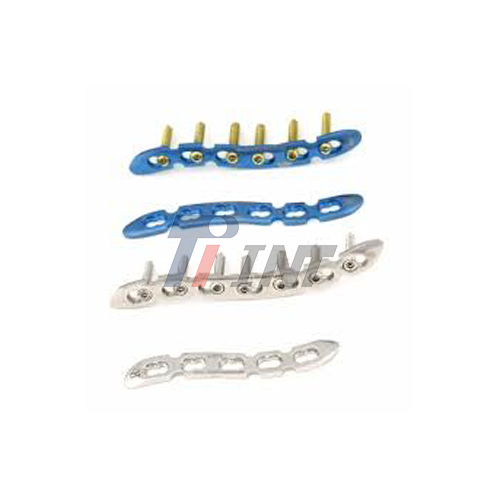

_1752821449466.webp)
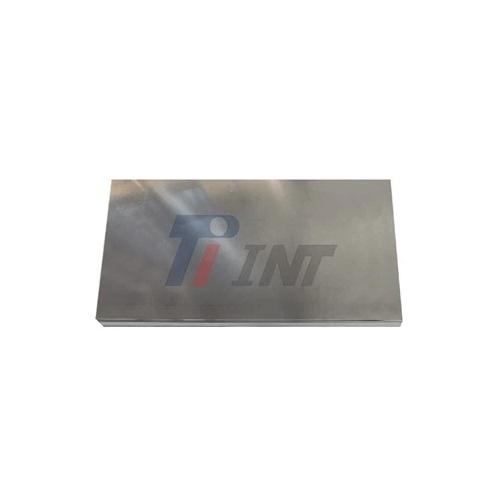
_1753927576158.png)
